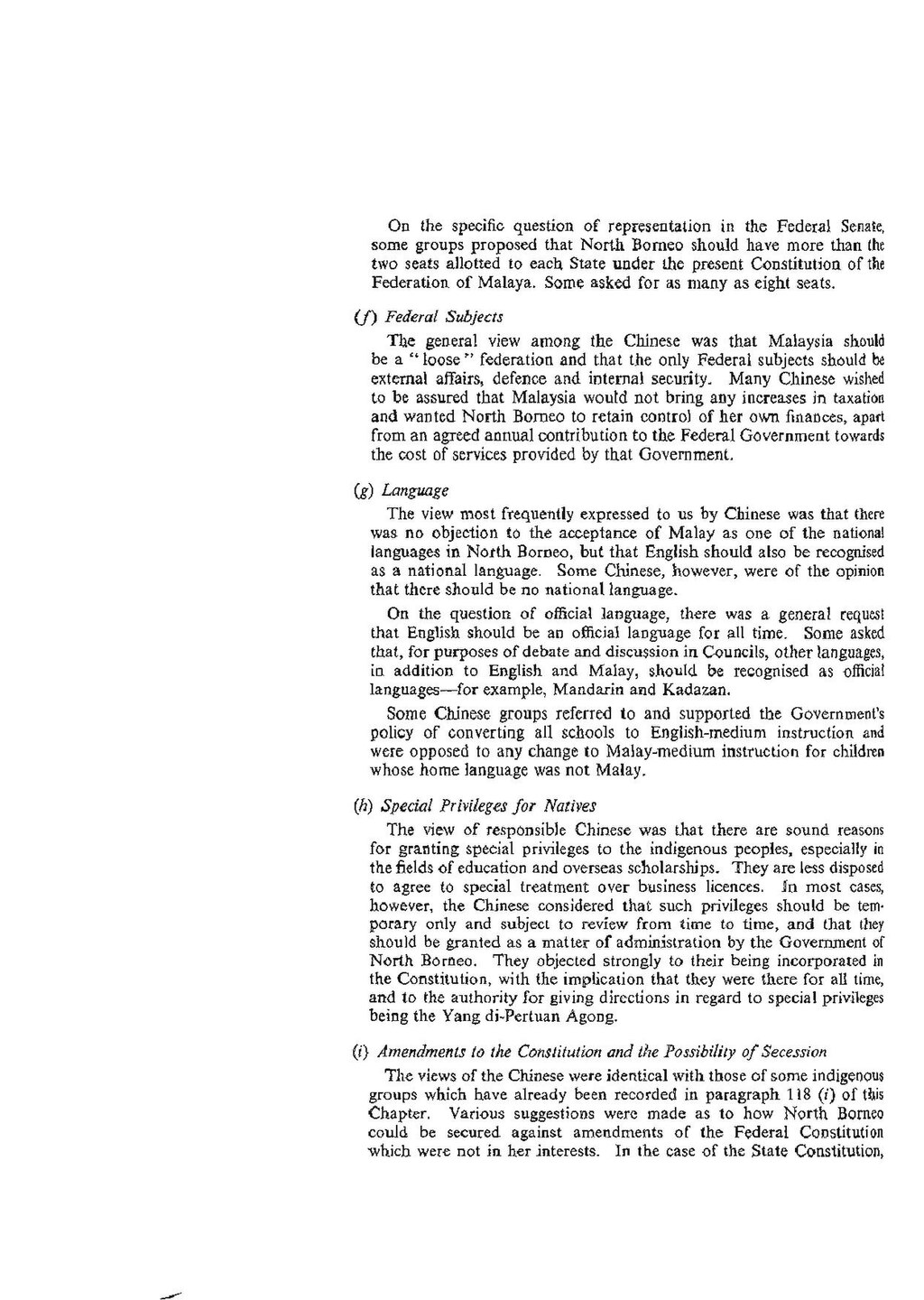On the specific question of representation in the Federal Senate, some groups proposed that North Borneo should have more than the two seats allotted to each State under the present Constitution of the Federation of Malaya. Some asked for as many as eight seats.
The general view among the Chinese was that Malaysia should be a "loose" federation and that the only Federal subjects should be external affairs, defence and internal security. Many Chinese wished to be assured that Malaysia would not bring any increases in taxation and wanted North Borneo to retain control of her own finances, apart from an agreed annual contribution to the Federal Government towards the cost of services provided by that Government.
The view most frequently expressed to us by Chinese was that there was no objection to the acceptance of Malay as one of the national languages in North Borneo, but that English should also be recognised as a national language. Some Chinese, however, were of the opinion that there should be no national language.
On the question of official language, there was a general request that English should be an official language for all time. Some asked that, for purposes of debate and discussion in Councils, other languages, in addition to English and Malay, should be recognised as official languages—for example, Mandarin and Kadazan.
Some Chinese groups referred to and supported the Government's policy of converting all schools to English-medium instruction and were opposed to any change to Malay-medium instruction for children whose home language was not Malay.
The view of responsible Chinese was that there are sound reasons for granting special privileges to the indigenous peoples, especially in the fields of education and overseas scholarships. They are less disposed to agree to special treatment over business licences. In most cases, however, the Chinese considered that such privileges should be temporary only and subject to review from time to time, and that they should be granted as a matter of administration by the Government of North Borneo. They objected strongly to their being incorporated in the Constitution, with the implication that they were there for all time, and to the authority for giving directions in regard to special privileges being the Yang di-Pertuan Agong.
The views of the Chinese were identical with those of some indigenous groups which have already been recorded in paragraph 118 (i) of this Chapter. Various suggestions were made as to how North Borneo could be secured against amendments of the Federal Constitution which were not in her interests. In the case of the State Constitution,
